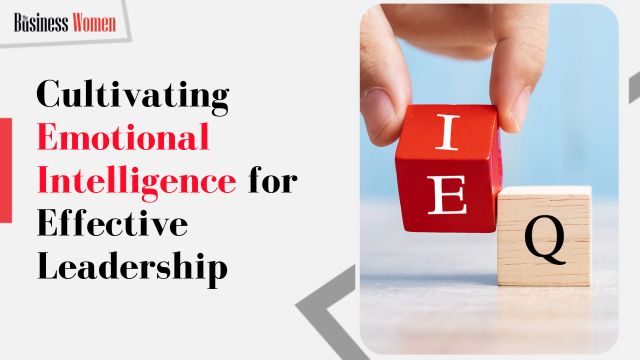In the world of business, effective leadership goes beyond technical expertise and qualifications. It requires a deep understanding of emotions, both in oneself and others. Emotional Intelligence (EI) is a crucial trait for successful leaders, enabling them to navigate complex relationships, inspire their teams, and drive organisational success. In this article, we delve into the significance of cultivating emotional intelligence for effective leadership in the context of the business world in India.
Understanding Emotional Intelligence:
Emotional Intelligence refers to the ability to recognise and understand one’s emotions and the emotions of others. It involves effectively managing emotions and using them to navigate various social situations.
Self-Awareness:
Effective leaders with high EI possess self-awareness. They have a clear understanding of their strengths, weaknesses, and emotions. This self-awareness allows them to make conscious decisions and respond thoughtfully to challenges.
Self-Regulation:
Emotionally intelligent leaders have strong self-regulation skills. They can control impulsive reactions and maintain composure even in high-pressure situations. This ability fosters a calm and productive work environment.
Empathy:
Empathy is a cornerstone of emotional intelligence. Leaders who demonstrate empathy can understand and share the feelings of their team members, fostering trust, and building strong relationships.
Active Listening:
Emotionally intelligent leaders are active listeners. They pay attention to their team members’ concerns, ideas, and feedback, making everyone feel valued and heard.
Effective Communication:
Effective communication is vital for leaders to convey their vision and expectations. Leaders with high EI use clear and empathetic communication to inspire and motivate their teams.
Resolving Conflict:
Conflict is inevitable in any workplace. Leaders with emotional intelligence can resolve conflicts with tact and sensitivity, finding win-win solutions that promote harmony within the team.
Building Positive Culture:
Emotionally intelligent leaders set the tone for the organisational culture. They cultivate a positive and supportive work environment that encourages growth and collaboration.
Decision Making:
Leaders with EI can make well-informed decisions by considering both rational factors and emotional implications. This balanced decision-making process leads to better outcomes.
Handling Stress:
The business world is often filled with stress and challenges. Emotionally intelligent leaders can handle stress effectively, supporting their team members in times of pressure.
Conclusion
Cultivating emotional intelligence is a game-changer for effective leadership in the business world in India. Understanding one’s emotions and those of others fosters self-awareness and empathy. Emotionally intelligent leaders can regulate their emotions and communicate effectively, fostering a positive and supportive work culture. Active listening and conflict resolution skills contribute to stronger relationships and better teamwork. Emotional intelligence also plays a pivotal role in decision-making and handling stress. By focusing on developing emotional intelligence, leaders can create an environment where employees feel valued, engaged, and motivated. The result is a more cohesive and productive team that thrives under the guidance of an emotionally intelligent leader. In the rapidly evolving business landscape, EI becomes an essential skill for leaders who seek long-term success and the ability to inspire and bring out the best in their teams. As organisations embrace the significance of emotional intelligence, they can unlock the full potential of their leadership and pave the way for a brighter and more prosperous future.









